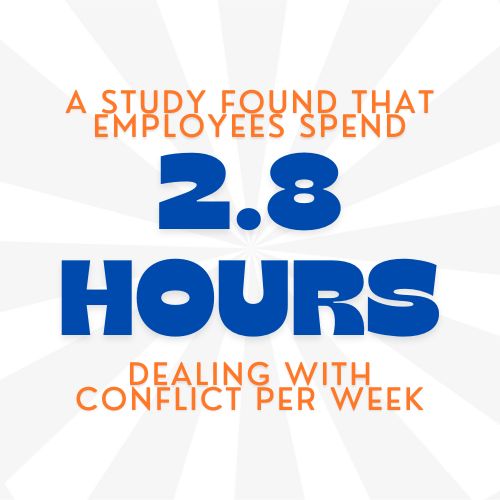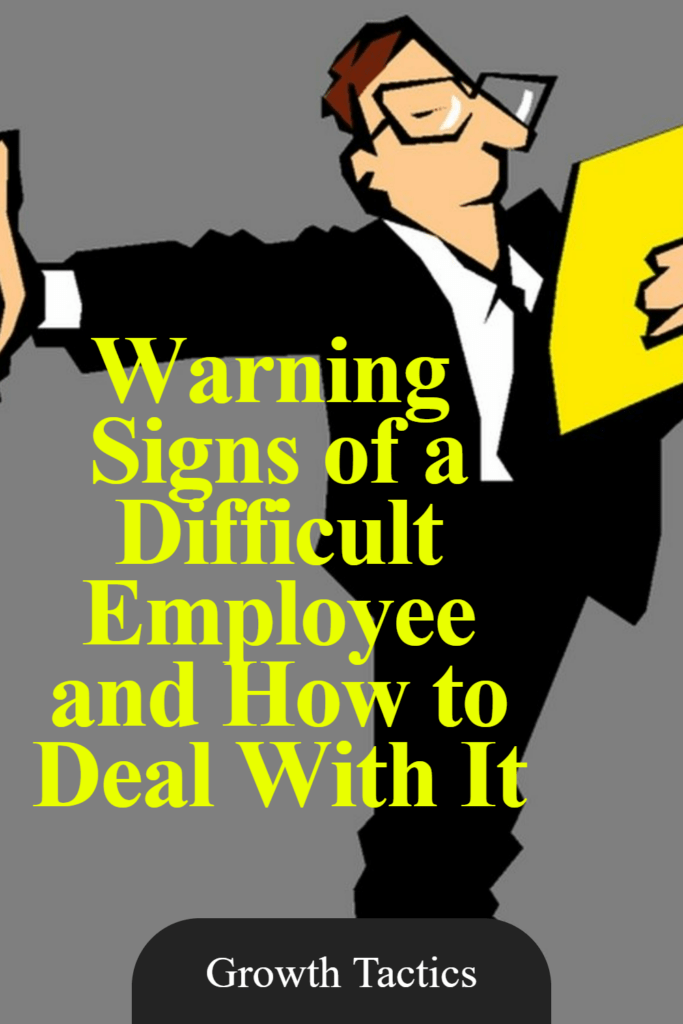Difficult employees can have a major impact on workplace morale and productivity. While some difficult behaviors are unintentional, others can become disruptive if unaddressed. This post will cover common signs of a difficult employee, how to have constructive conversations to improve the situation, setting clear expectations, providing feedback and support, taking corrective action if needed, and avoiding common management mistakes. The goal is to provide managers with strategies for turning around negative behaviors and improving workplace relationships. With the right approach, both the employee and the company can benefit.
Jump To Section
What Makes an Employee Difficult?
There are several traits and behaviors that can make an employee difficult to work with. Some of the most common include:
Poor attitude and negativity
Employees with a poor or negative attitude can sap energy and morale from the rest of the team. They may complain frequently, spread gossip, or resent authority. A negative attitude is often reflected in the quality of their work and interactions with coworkers. Signs include:
- Making frequent sarcastic or derogatory remarks
- Expressing irritation or lack of enthusiasm about tasks
- Blaming others for mistakes or circumstances
- Spreading rumors or gossiping about coworkers or management
Lack of motivation and engagement
Employees who exhibit low motivation or engagement can be difficult because they don’t put in sufficient effort. Signs include:
- Consistently missing deadlines or abandoning tasks midway
- Producing subpar work lacking care or attention to detail
- Doing the bare minimum to get by
- Showing up late, leaving early, or taking excessive breaks
Passive-aggressive behavior
Passive-aggressive employees can be difficult because they resist authority in subtle, indirect ways. Signs include:
- Feigning agreement but then failing to follow through
- Making excuses for poor performance
- Ignoring requests or reminders from managers
- Intentionally working slowly when asked to improve productivity
Disregard for authority
Employees who disregard authority and company policies make management difficult. They may be chronically insubordinate or feel rules don’t apply to them. Signs include:
- Ignoring or arguing with reasonable directives
- Refusing to follow protocols or procedures
- Acting defiant when given constructive feedback
- Repeatedly violating dress code, cell phone, or other policies
Signs of a Difficult Employee

One of the clearest signs of a difficult employee is constant excuses and denial of responsibility for mistakes. They will find ways to blame others on the team or external factors when something goes wrong, rather than taking ownership. This avoidant behavior prevents them from learning and improving.
Related to this, difficult employees frequently blame coworkers or management when problems occur. Their instinct is to deflect responsibility by pointing fingers, rather than having a solutions-oriented attitude. This creates tension and erodes workplace relationships.
Poor communication skills are another hallmark of a problematic employee. They may be passive-aggressive in their communication style, avoid direct conversations, or lack emotional intelligence. Communication breakdowns can have significant consequences on collaboration and team morale.
Finally, some difficult employees exhibit a pronounced lack of self-awareness. They do not recognize how their behavior impacts others, or how they are perceived. Without this insight, it becomes challenging for them to course correct.
The Impact on the Workplace
A difficult employee can have a significant negative impact on the rest of the team and the overall work environment. Here are some of the common issues that can arise:
Lower morale and motivation among other employees
One difficult employee with a negative attitude can quickly bring down the morale of the entire team. Other employees can start to feel resentful about having to pick up the slack for an underperforming coworker. It can be demotivating to work alongside someone who is not pulling their weight.
Loss of productivity and missed deadlines
When one employee is not completing their fair share of work, it puts more pressure on everyone else. Coworkers often end up taking on extra work to compensate, which takes time away from their own tasks and responsibilities. As a result, overall productivity and efficiency suffer. Deadlines are more likely to be missed.
Increased stress and conflict

A toxic employee poisons the work environment with their negativity. They may complain frequently, spread rumors, or even sabotage coworkers. This causes rifts between team members and can lead to a stressful, cutthroat culture. Other employees dread coming to work and interacting with the difficult coworker. Some may become burned out and resign due to the hostile climate.
Have a Constructive Conversation

When an employee is struggling, it’s important to have a constructive conversation to address the issues. Schedule a private meeting and make it clear you want to have an open discussion to help get them back on track.
Provide specific examples of concerning behaviors you have observed, such as missed deadlines, poor communication with the team, or low-quality work. Stick to the facts without being accusatory. Ask if there are any external factors impacting their performance that you can help with.
Allow the employee to share their perspective without interruptions. There may be mitigating circumstances or challenges they are facing that you are unaware of. Listen openly and give them the benefit of the doubt.
Make it clear your goal is to help them succeed, not punish them. Offer support and resources like additional training, check-ins, or mentoring. Set clear expectations for improvement with specific action steps. Schedule follow-ups to track progress. With the right guidance and opportunity to course-correct, many struggling employees can get back on track.
Set Clear Expectations
One of the most important steps when dealing with a difficult employee is to set clear expectations for improvement. As a manager, you must outline which behaviors or performance metrics need to change and provide a timeline for when you expect to see progress.
Be as direct and detailed as possible. For example, say “I expect you to respond to emails from clients within 2 hours during normal business hours” rather than “you need to be more responsive.” Quantify productivity goals and give specific examples of appropriate conduct when providing feedback.
Along with laying out expectations, also establish deadlines and accountability check-ins. Say “I’d like to see you meeting a quota of 5 client calls per day starting next week. Let’s meet again in two weeks to review your progress.” This way the employee knows exactly what needs to be accomplished.
Providing some coaching or training may also be warranted if the employee is struggling with skills or knowledge gaps. Offer to go through customer service protocols again or have them shadow a high-performing team member. Investing in an employee’s development shows your commitment to their success.
Setting clear expectations with deadlines, measurable goals, and growth opportunities empowers the employee to improve. They will not doubt the precise changes you want to see.
Offer Feedback and Support
Providing regular feedback and support is crucial for helping difficult employees improve. As a manager, you should check in regularly to monitor their progress on tasks and projects. Don’t wait until a formal review – give feedback in real time, as issues arise. Timely feedback allows the employee to course-correct and make changes right away.
It’s also important to offer coaching and mentoring. Sit down with the employee to provide guidance, training, and resources to help them develop new skills. Be a mentor who can listen to their concerns, share your experiences, and brainstorm solutions together. With the right support system, many struggling employees can get back on track. The key is having open communication and demonstrating that you want the employee to succeed.
Take Corrective Action
If an employee continues to exhibit poor performance or problematic behaviors after receiving feedback and support, stronger corrective action may be necessary. As a manager, it’s important to follow proper protocols and procedures when disciplining employees.
First, review your company’s policies around disciplinary action. Many organizations have progressive discipline procedures that start with a verbal warning, then a written warning, followed by suspension or termination. Document each step thoroughly.
If poor performance stems from skill deficits rather than behavioral issues, putting the employee on a performance improvement plan (PIP) can help get them back on track. A PIP should clearly outline performance expectations, provide additional training if needed, and state consequences for failure to improve within a set timeframe.
In some cases, reassigning the employee to a new role or department may improve performance by providing a better fit. However, if the employee shows no sign of improvement after reasonable efforts, termination may be the only option. Consult HR before terminating any employee.
When faced with a difficult employee situation, act promptly yet judiciously. Follow disciplinary protocols, provide support, and give the employee a chance to improve, but don’t let problems fester – take corrective action when necessary. With the right approach, you can resolve issues while being fair to both the employee and the organization.
Avoid Common Mistakes
When dealing with a difficult employee, managers must avoid some common mistakes that can exacerbate the situation.
Don’t Delay Taking Action
One of the biggest mistakes is delaying taking any action at all. Hoping the issue will resolve itself or ignoring early warning signs will likely lead to bigger problems down the road. Address any negative behaviors or performance issues before they spiral out of control. The longer you wait, the worse it will get. Tackle problems head-on.
Don’t Make Excuses for the Employee
It can be tempting for managers to make excuses for an employee’s poor attitude or declining work product. Don’t assume external factors like family problems or health issues are to blame. While those things may play a role, it doesn’t excuse unprofessional conduct or subpar work. Address the actual behaviors and job performance, not speculative root causes.
Don’t Get Personal or Emotional
When providing feedback to a difficult employee, it’s important to remain calm and professional, no matter how frustrating the situation is. Reacting emotionally or making personal attacks will not help to resolve the underlying issues. Focus objectively on job performance and conduct, not subjective judgments about the employee’s personality or character. Stay solution-oriented.
Conclusion
When dealing with a difficult employee, it is important for managers to take a proactive approach. Recapping the main points, managers should watch for warning signs like poor communication, negative attitude, lack of engagement, and passive-aggressive behavior. If these issues emerge, act swiftly by having constructive conversations, setting clear expectations with consequences, providing feedback and support, and taking corrective action when needed.
Though addressing employee problems head-on can be uncomfortable, it is imperative for maintaining a healthy and productive workplace culture. Allowing negativity and poor performance to fester will only make matters worse. With compassion and firmness, managers can get struggling employees back on track or make the tough call to terminate employment when necessary.
The bottom line is if you sense an employee is becoming problematic, step in right away. Don’t ignore red flags hoping the situation will resolve itself. Be proactive by communicating concerns transparently while providing support. But also be ready to enforce consequences for continued issues. Addressing problems promptly can nip dysfunction in the bud before it spirals out of control. With courage and wisdom, managers can turn around difficult employees or weed out those unwilling to improve. The effort will be well worth it for lifting your entire team.


